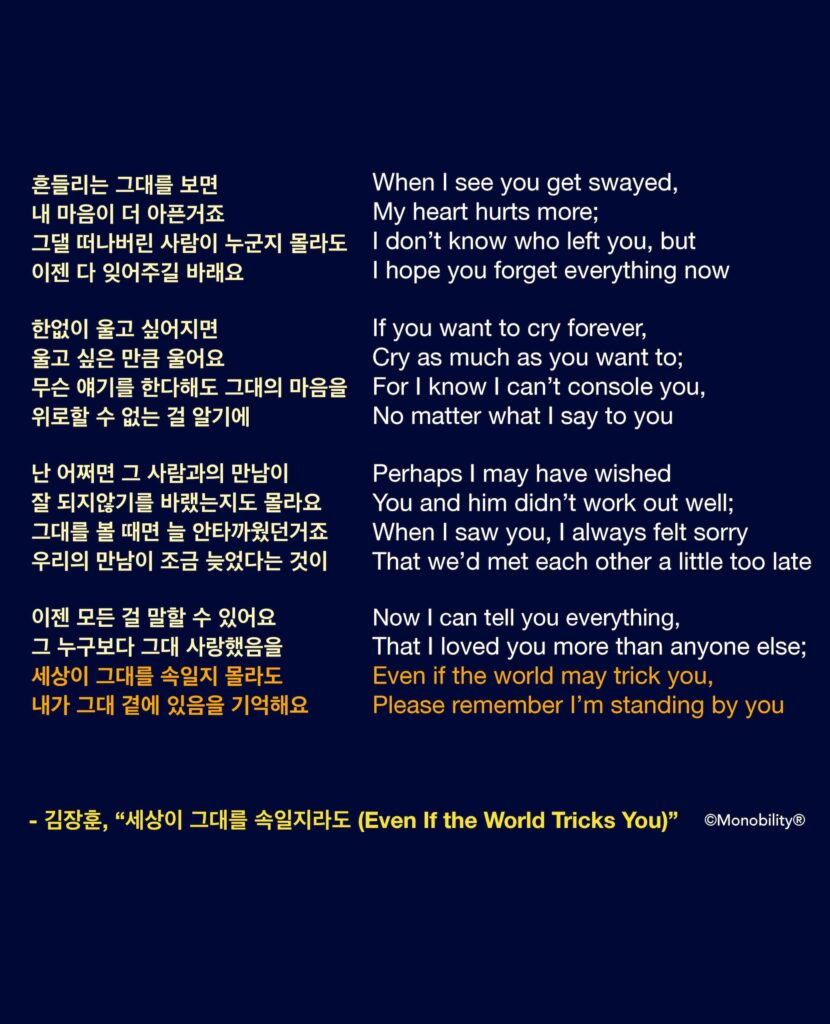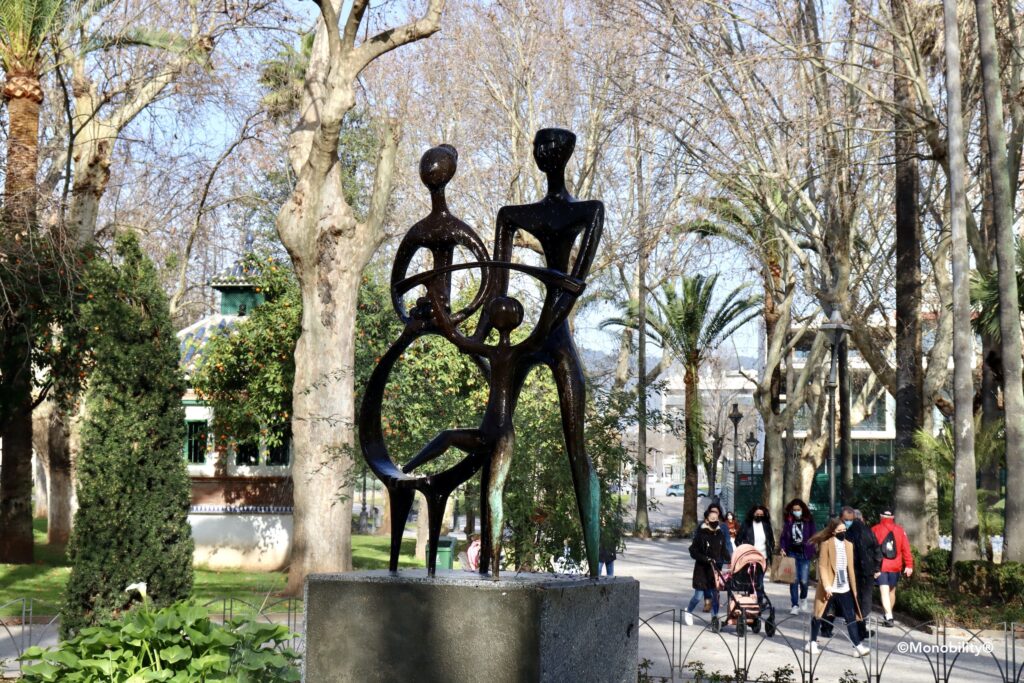In East Asian history, it is well known that Koreans have enjoyed singing and dancing since the ancient times. Koreans’ musical talent has had international reputation in the region, partly due to the history written by travelers from neighbor countries as well as in Korea. Today, the ordinary Koreans do sing everywhere – at home, in 노래방 (Korean-style karaoke rooms), or at any after-work parties, taking turns one by one, with or without a microphone. Because of the social customs for singing and music, Koreans are supposed to be ready to sing any time. Even as a foreigner, you would need to know at least one song, preferably in Korean, to sing in front of your colleagues, friends, and possibly, family of your Korean love, if you’d like to be socially accepted in your “inner Korean circle.”
I just hope that Monobles – our group members – should know this fact by now, after watching innumerable videos and movies and dramas where Koreans sing. Some of them, e.g., BTS, do sing very well, and others, not so well. But in general, most Koreans enjoy singing and listening to others sing, and take musical talent seriously. More so than in any other country I have personally visited and lived in so far.
And when some people around you in your country make negative comments about Korea, out of their ignorance, prejudice, envy, or jealousy, such as “Why are you learning Korean? It’s not even Chinese or Japanese!” or “In Korea, people don’t sing. It’s not in their DNA,” I hope you to stand up to them and tell them at least this:
“In Korea, people do sing. It’s in their DNA.”
When you stand up to such people, Koreans will stand by you.

(마음이) 흔들리다 to be swayed; to be losing faith/confidence
보면 if/when (I) see; [ (verb)-면 if / when … ]
더 more
마음이 아프다 (someone’s) heart hurts; [ 아픈거죠 colloquial ending -ㄴ거죠 ]
누군지 모르다 to not know who …
몰라도 even if … not know [ (verb)-도 concessive clause ending: Even if, even though ]
잊다 forget; 잊어주길 바라다 to hope/wish someone to forget [ (verb)-길 바라다 hope (someone) to do… ]
울고 싶다 want to cry
-은/는 만큼 as much as …
얘기를 하다 tell (a story)
위로하다 comfort/console
위로할 수 없다 can’t console [ (verb)-ㄹ 수 없다 can’t … ]
위로할 수 없는 걸 알다 know that … can’t console [ -은/는 걸 알다 know that … ]
알기에 for/since/because (I) know [ -기에 poetic ending for saying the reason ]
어쩌면 perhaps, maybe
만남 meeting, encounter
잘 되지않다 (relationships) don’t go well, don’t work out
바랬는지도 몰라요 Maybe I wished …; I may have wished … [ idiomatic; literally, “I don’t know if I have wished … “ ]
볼 때면 when I see … [ (verb)-ㄹ 때면 when/if … ]
늘 always
안타깝다 feel sorry, regret, it pains me that … [ (verb)-ㅆ던거죠 past tense, colloquial ]
조금 a little
늦었다 was late
모든 걸 = 모든 것을 everything [ -을/를 accusative case ]
그 누구보다 more than anyone else [ idiomatic ]
사랑했음을 that I loved you [ (verb)-ㅆ음을 a noun form of 사랑했다 – can be used as a subordinate clause, past tense; rarely used in everyday speech – poetic, literary. Normally, one should say “사랑했다는 걸/것을” ]
세상 world, earthly world; figuratively, people on earth
속이다 deceive, trick; 속일지 몰라도 even if … deceives [ (verb)-ㄹ지 모르다 may (verb) = possibility ] [ (verb)-도 even if (= concessive clause) ]
곁에 beside (a person)
있음을 a noun form of 있다 (to be); -을 accusative (object marker) [ In a normal speech, one should say “있다는 것을/걸” ]
기억하다 remember
Если жизнь тебя обманет,
Алекса́ндр Пу́шкин (Alexander Pushkin 1799 – 1837), “Если жизнь тебя обманет (If Life Deceives You)”
Не печалься, не сердись!
В день уныния смирись:
День веселья, верь, настанет.
Сердце в будущем живет;
Настоящее уныло:
Все мгновенно, все пройдет;
Что пройдет, то будет мило.
삶이 그대를 속일지라도
슬퍼하거나 노여워하지 말라!
슬픈 날을 참고 견디면
기쁜 날이 오고야 말리니
마음은 미래에 살고
현재는 우울한 것
모든 것은 순간에 지나가고
지나간 것은 다시 그리워지나니
Check out our Facebook for much more:



